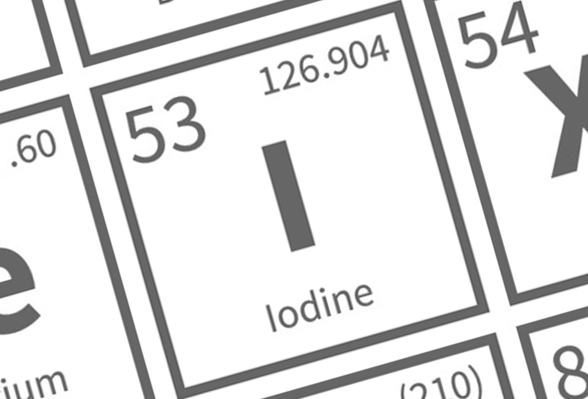The results of the latest survey monitoring iodine supply in the Swiss population show iodine sufficiency in children but insufficiency in pregnant women.
The urinary iodine concentration in schoolchildren (n=362) indicates an iodine sufficiency (127 µg/L; an adequate concentration is between 100 and 300 µg/L). However, the urinary iodine concentration in pregnant women (n=473) indicates an insufficiency (97 µg/L; an adequate concentration is between 150 and 500 µg/L). In comparison with the last survey in 2014, iodine status in children has remained unchanged (137 µg/L in 2015) while that in pregnant women has fallen (140 µg/L in 2015). The current survey also shows that pregnant women who take iodine-enriched dietary supplements have a better iodine status.
According to salt samples collected from the schoolchildren’s homes, 81% of households use iodised tablet salt.
Detailed results of the latest iodine monitoring survey from 2020 to 2022 were published in the European Journal of Nutrition on 23 December 2023: Iodine intake in the Swiss population 100 years after the introduction of iodised salt: a cross-sectional national study in children and pregnant women – PubMed (nih.gov)

Swiss iodine monitoring survey 2020–2022
Iodine deficiency in humans causes various health problems resulting from insufficient production of thyroid hormones. Switzerland is geologically poor in iodine and locally produced foods are accordingly low in iodine, so table salt is fortified with iodine. Salt enrichment is currently seen as the most effective strategy for preventing iodine deficiency and ensuring an adequate iodine supply in the population. Because various factors influence the intake of iodine from the diet, the FSVO checks the iodine status of certain population groups every five years. The urinary iodine concentration serves as the main indicator. This is a good biomarker for iodine supply in the population, as the majority of the iodine ingested with the diet is eliminated in the urine within 24 hours.
The objective of iodine monitoring is to establish representative and meaningful data on the current iodine status of primary-school children and pregnant women in Switzerland, allowing healthcare policy measures to be adopted swiftly in the event of an emerging under-supply.
- What is the iodine status of schoolchildren and pregnant women in Switzerland?
- How has the iodine status of these population groups evolved over the last 20 years?
- Is thyroid gland function in pregnant women satisfactory?
- What proportion of households use iodised salt?
Between 2020 and 2022, the schoolchildren participating in the study gave a urine sample. Their height and weight were measured at the same time. The children’s legal guardians completed a questionnaire on the type of table salt used at home and the consumption of iodine-rich foods such as milk and dairy products. A further question concerned the use of fluorinated toothpaste. In addition, salt samples were collected from the homes of a randomly selected 30% of the children and used for iodine content analysis.
Thyroid function markers were analysed in a dried blood sample collected from the pregnant women taking part in the study.
This monitoring survey is a cross-sectional study. To guarantee a representative national sample of children aged 6 to 12 and of women in their second and third trimester of pregnancy, the researchers used three-stage random sampling in proportion to the population. The children were recruited via schools and the women via gynaecologists and maternity clinics. Participation in the study was voluntary.
Approval for the study was obtained from the cantonal ethics commission of the Canton of Zurich. The consent of the cantonal education and health executives was additionally obtained for the schoolchildren’s participation. The study is registered in the Swiss National Clinical Trials Portal and at clinicaltrials.gov.
Personal data are subject to data protection and are treated confidentially. All data were pseudonymised, i.e. saved separately from names and contact details. All evaluations and analyses were carried out without reference to names and addresses. The information obtained will be presented solely in anonymised form.
The study was funded by the Federal Food Safety and Veterinary Office (contract no 0714001376). The study was conducted by the Laboratory for Human Nutrition at ETH Zurich, the Zurich University Children’s Hospital and Unisanté Lausanne.
Last modification 16.01.2024




